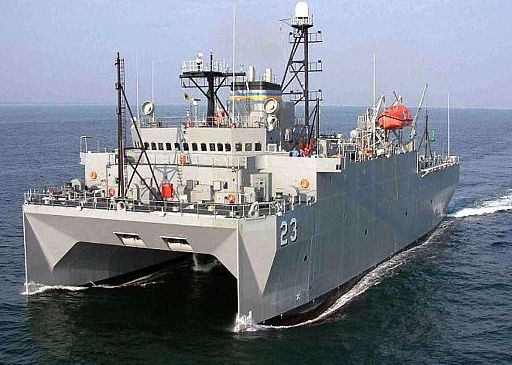During bilateral meetings on maritime safety, China asked the US to phase out surveillance activity using Low-Frequency Active Sonar near its coast. Over the past year, there have been five incidents in which Chinese ships (Naval and fishing boats) harassed the USNS Impeccable, one of two US ships equipped with LFAS, and other Navy ships. The Chinese object to surveillance activity within its EEZ (Exclusive Economic Zone), which extends 200 miles from each country’s coast; the US contends that such activity is only barred within the 12-mile territorial waters zone.

USNS Impeccable (US Navy photo)
Navy survey ships were harassed five times this year by Chinese naval and civilian vessels as well as military aircraft in the South China Sea and Yellow Sea – in one case 75 miles south of Hainan island, the location of a strategic Chinese Navy base which reportedly houses ballistic missile submarines. Beijing said at the time that the unarmed Impeccable, was carrying out “illegal surveying” in its EEZ, violating Chinese and international laws. The U.S. Navy says the Impeccable is designed to detect quiet foreign diesel and nuclear-powered submarines and to map the seabed for future antisubmarine warfare purposes.
The key bone of contention is that the Chinese do not accept that the Impeccable’s activities fall under recognized right of navigation in EEZ waters; the U.N. Convention on the Law of the Sea (UNCLOS) provides for “freedom of navigation and overflight” in EEZs. It says military activities inside EEZs must be “peaceful” and must not harm the coastal state’s environment or economic resources. Read the rest of this entry »

